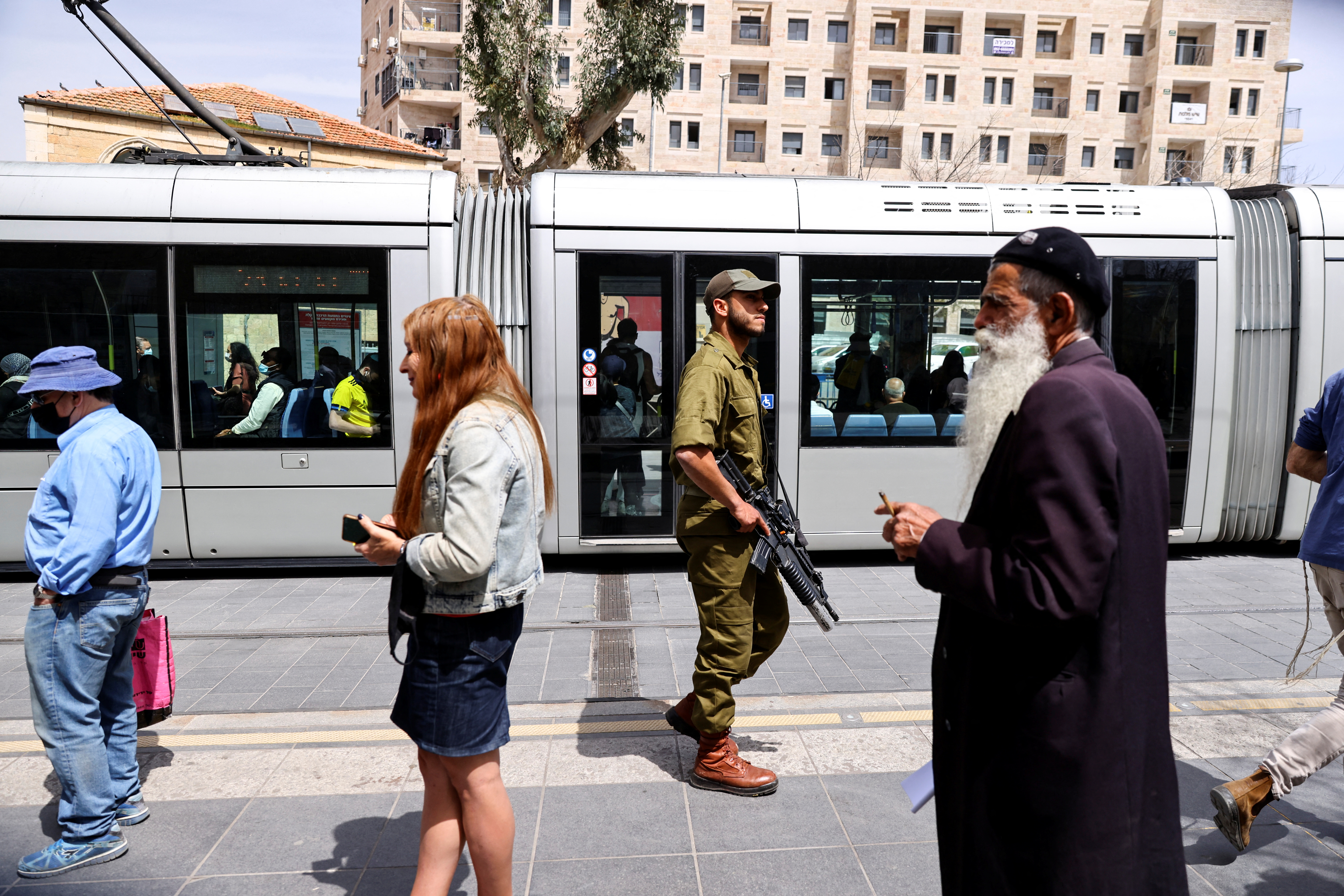
Israel will close gaps in security barriers and continue to prevent further Palestinian attacks amid a wave of terrorist attacks before the start of the Muslim holy month of Ramadan, according to sources with knowledge of the situation.
A total of 11 people, 9 Israelis and two Ukrainians, have been killed in attacks in Israel since 22 March, including some perpetrated by assailants linked to or inspired by the Islamic State group. On Saturday, Israeli forces killed three members of the Islamic Jihad terrorist group who were preparing an attack. Four Israeli soldiers were injured in the clash, one of them seriously, police said.
The bloodshed comes amid increased tensions before the start of the Muslim holy month of Ramadan. Last year, during this commemoration, clashes broke out between Israeli forces and Palestinians visiting the compound of the Al-Aqsa mosque in east Jerusalem, leading to 11 days of devastating conflict between Israel and the Hamas terrorist group.
Despite fears, sources with knowledge of the situation said that Israel will not change its policies, pursuing a strategy that envisages measures that seek to protect and benefit civilians along with counter-terrorism measures to address the different levels of threat.
Thus, on the one hand, the authorities will allow the entry of Palestinian parishioners who want to pray in the sacred places of the Israeli capital, according to the sources, while on the other hand they deployed more forces and began to rebuild and fix parts of the Judea and Samaria security barrier, after a Palestinian exploited a breach in the fence and killed five people in a gunshot attack in Bnei Brak last week.

The sources also denied that the Palestinian Authority is losing control of the situation and highlighted efforts to maintain calm in cities. Israel will continue collaboration with the Palestinian Authority to prevent and respond to further attacks, the sources said.
On the other hand, the sources denied that there is an escalation and assured that the Israeli security forces do not see a connection between the attacks, although they may be mutually inspired.
“On high alert”
The region was ravaged by a series of violent episodes in the past two weeks, including four terrorist attacks against Israelis and multiple armed clashes between security forces and Palestinians in the West Bank. The wave of attacks on Israeli territory has been the most violent in years and has led Israel to deploy a large number of additional troops.
On the other hand, the climate of tension in the region coincides with the beginning of the Muslim holy month of Ramadan, a period that is usually characterized by an increase in violence in the area and even peaks such as the one that triggered the escalation of war with the Gaza militias in May last year.
Visiting the headquarters of security agency Shin Bet in northern Judea and Samaria, Israeli Prime Minister Naftali Bennett said on Sunday that Israel is entering a period of “vigilant routine” as security forces work to prevent further terrorist attacks.
“Terrorists have all kinds of ideas, so we are on high alert, both the Shin Bet and the Israel Police, to identify any indication of an idea or plan of attack and thwart it ahead of time,” Bennett said.
Bennett said the Israel Defense Forces are also on high alert along the Judea and Samaria security barrier.
Keep reading:
Últimas Noticias
Debanhi Escobar: they secured the motel where she was found lifeless in a cistern
Members of the Specialized Prosecutor's Office in Nuevo León secured the Nueva Castilla Motel as part of the investigations into the case

The oldest person in the world died at the age of 119
Kane Tanaka lived in Japan. She was born six months earlier than George Orwell, the same year that the Wright brothers first flew, and Marie Curie became the first woman to win a Nobel Prize

Macabre find in CDMX: they left a body bagged and tied in a taxi
The body was left in the back seats of the car. It was covered with black bags and tied with industrial tape
The eagles of America will face Manchester City in a duel of legends. Here are the details
The top Mexican football champion will play a match with Pep Guardiola's squad in the Lone Star Cup

Why is it good to bring dogs out to know the world when they are puppies
A so-called protection against the spread of diseases threatens the integral development of dogs




